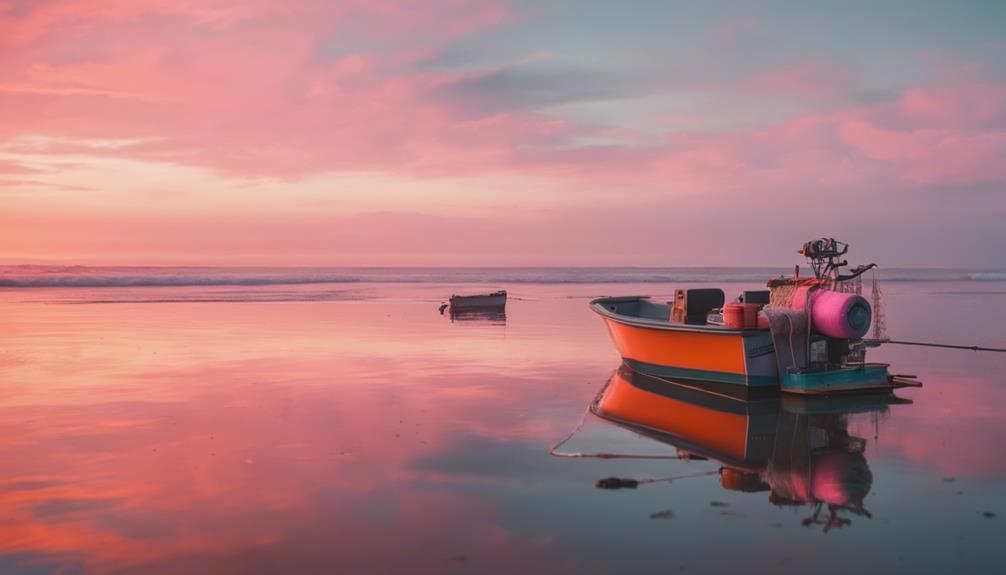Understanding the Fly Fishing Industry: An Overview
The fly fishing industry is more than just a hobby; it’s a thriving sector that encompasses various activities, from guiding and retail to manufacturing and conservation. As the popularity of fly fishing continues to grow, so does the demand for skilled professionals in this field. Whether you are an experienced angler or someone looking to dive into a new career, understanding the landscape of fly fishing industry jobs is essential. This article will explore the various roles, the skills required, and the future of employment in this dynamic industry.
Types of Fly Fishing Industry Jobs Available
The fly fishing industry offers a diverse range of job opportunities that cater to different interests and skill sets. Some of the most common positions include fly fishing guides, retail sales associates, product developers, and conservation specialists. Fly fishing guides are crucial as they lead fishing trips and share their expertise with clients, while retail positions focus on selling gear, clothing, and accessories. Product developers and manufacturers work on creating innovative products, such as rods, reels, and flies, while conservation specialists focus on the sustainability of fish populations and habitats. These roles not only contribute to the industry but also support the environmental health of aquatic ecosystems.
Essential Skills for Careers in Fly Fishing
To succeed in fly fishing industry jobs, candidates need a unique blend of skills. First and foremost, a strong understanding of fly fishing techniques and equipment is vital. Additionally, excellent communication and customer service skills are essential for guiding roles, as they involve direct interaction with clients. For those in retail, sales skills and product knowledge are crucial for helping customers make informed purchasing decisions. Technical skills in product development may also be required, especially for those involved in designing and manufacturing fly fishing gear. Lastly, a passion for conservation and a commitment to sustainable practices are increasingly valued in this industry.
Educational Paths and Certifications for Fly Fishing Jobs
While some fly fishing industry jobs may not require formal education, pursuing specific training or certifications can greatly enhance your employability. Many aspiring guides choose to obtain certifications through recognized organizations, such as the International Federation of Fly Fishers (IFFF) or the American Fly Fishing Trade Association (AFFTA). Additionally, attending workshops, seminars, and training programs offered by various fly fishing schools can provide hands-on experience and networking opportunities. For roles in product development, a background in engineering, design, or business can be beneficial. Online courses related to marketing, environmental science, and biology may also provide valuable insights into different aspects of the industry.
The Role of Networking in the Fly Fishing Industry
Networking is a key component of building a successful career in the fly fishing industry. Joining professional organizations, attending trade shows, and participating in local fly fishing clubs can open doors to new job opportunities and collaborations. Engaging with fellow anglers, industry professionals, and conservationists can lead to valuable mentorship and guidance. Social media platforms, such as Instagram and LinkedIn, also provide excellent avenues for connecting with others in the field. By building a strong network, you can stay informed about industry trends, job openings, and the latest innovations in fly fishing gear.
The Future of Fly Fishing Industry Jobs: Trends and Predictions
The future of fly fishing industry jobs looks promising, driven by trends such as increased participation in outdoor activities, a growing focus on sustainability, and advancements in technology. As more people discover the joys of fly fishing, the demand for guides, instructors, and retail professionals will likely rise. The industry’s commitment to conservation and environmental stewardship may also create new roles focused on habitat restoration and sustainability practices. Furthermore, technology’s impact on fly fishing gear and marketing strategies will necessitate skilled professionals who can adapt to these changes. As the industry evolves, continuing education and adaptability will be key factors in securing a successful career.
Top Companies and Organizations Hiring in the Fly Fishing Sector
Numerous companies and organizations are actively hiring within the fly fishing industry. Leading brands such as Orvis, Simms Fishing Products, and Patagonia are known for their commitment to quality and sustainability and often seek talented individuals for various roles. Additionally, independent fly shops, guiding services, and conservation organizations frequently hire passionate anglers to fill positions that align with their mission. Keeping an eye on job boards, company websites, and industry publications will help you stay updated on new opportunities. Networking within the community can also lead to insider knowledge about upcoming job openings.
The Importance of Passion and Commitment in Fly Fishing Careers
Ultimately, pursuing a career in the fly fishing industry requires a genuine passion for the sport and a commitment to its principles. Whether you are guiding clients on a serene river, designing innovative gear, or advocating for conservation efforts, your enthusiasm will resonate with others and contribute to the overall health of the industry. Employers in the fly fishing sector value candidates who share their dedication to the sport and its environmental impact. By aligning your career with your passions, you can create a fulfilling and rewarding professional journey while making a positive difference in the world of fly fishing.
Conclusion
In conclusion, the fly fishing industry offers a wealth of job opportunities for those who are passionate about the sport and its sustainability. By understanding the various roles available, developing essential skills, and networking with industry professionals, you can position yourself for a successful career in this growing field. As the industry continues to evolve, staying informed about trends and advancements will be vital for long-term success. Whether you aspire to be a guide, a retail expert, or a conservation advocate, there has never been a better time to explore the exciting world of fly fishing industry jobs.
